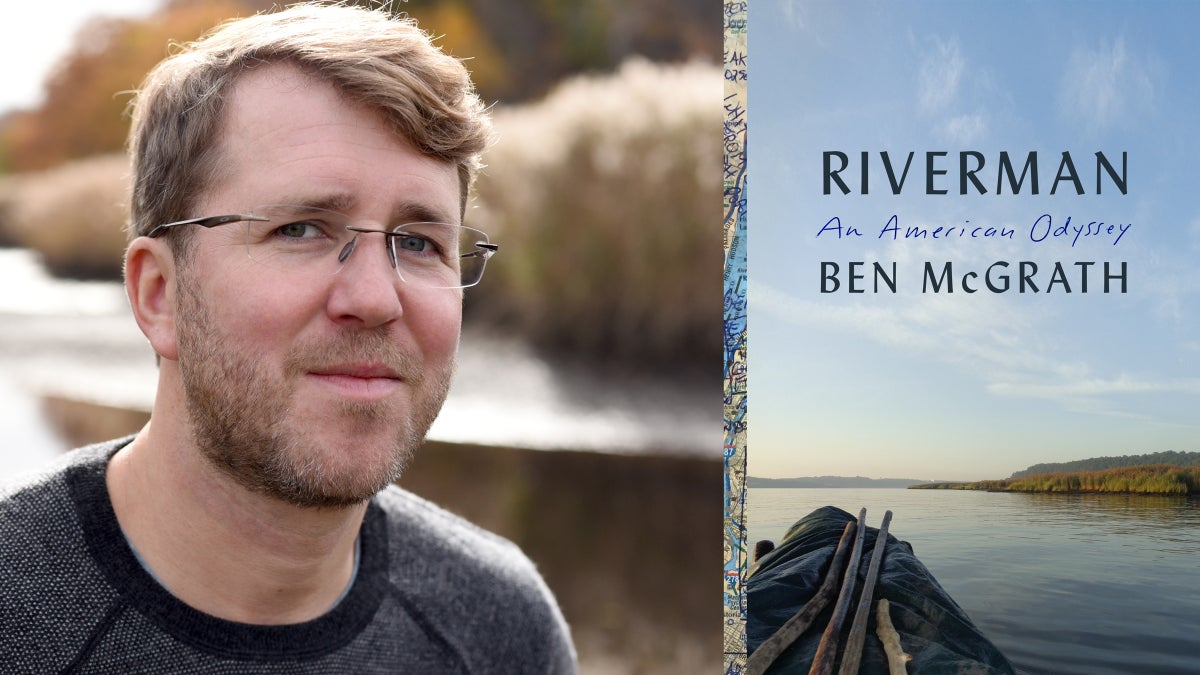No products in the cart.
Outdoor Adventure
‘Riverman’ Investigates the Disappearance of Dick Conant, Modern American Folk Hero
Get full access to Outside Learn, our online education hub featuring in-depth fitness, nutrition, and adventure courses and more than 2,000 instructional videos when you
sign up for Outside+.
In late November 2014, a fisherman and his young son came upon an overturned red plastic canoe while they were out in the cypress swamps of North Carolina’s Albemarle Sound. The weather had been bad, and nobody was around. In the boat, according to New Yorker staff writer Ben McGrath’s new book Riverman: An American Odyssey, they found “bags within bags within knotted bags,” secured by a carefully rigged web of ropes. In addition to maps and charts and water bottles, the canoe contained “seventeen toothbrushes, fourteen ChapSticks, six cigarette lighters, a sewing kit, a socket, a digital camera, three Louis L’Amour novels, a mud-caked Samsung flip phone, two thumb drives, eleven pens, a deck of playing cards, a marine radio, a four-foot extension cord, two CVS key fobs, John Paul Jones: A Sailor’s Biography”—enough to fill two trailers. Also discovered within the hull was a piece of paper with McGrath’s phone number scribbled on it.
Several months earlier, McGrath had met an itinerant canoeist on the Hudson River outside McGrath’s home in Piermont, New York. Dick Conant, as the man introduced himself, was large and bearded; he looked like a river Santa, McGrath writes, a man “who had been dressing more or less exclusively in bib overalls since Woodstock.” As it turns out, Conant was a former janitor, surgical scrub nurse, and navigator for a Navy ship. He first took to the nation’s rivers in 1999 at age 49; living in Boise, Idaho, fed up with everything, he bought a plastic canoe at Walmart, plopped it into the Yellowstone River, and headed for the Gulf of Mexico. He’d been paddling off and on ever since.
Nearly everyone who encountered Conant remembers him as a seminal figure who provided a glimpse of freedom that most of us only dream about.
We’re excited to announce that Riverman is the Outside Book Club’s April pick. It’s a remarkable work of nonfiction—the river wanderer kept copious notes on his travels (many of them found stuffed in the canoe), and through the seemingly fabulist tales in Conant’s journals, McGrath was able to track down dozens of good Samaritans and fast friends that Conant made along the way. What begins for McGrath as a fact-checking exercise turns into an exhaustive journey into Conant’s life on the water, as McGrath meets character after character who prove that nearly all of Conant’s diary entries were true.
Nearly everyone who encountered Conant remembers him as a seminal figure who provided a glimpse of freedom that most of us only dream about. Conant swills river water and lives on hot dogs, Tabasco sauce, and malt liquor. He stops in little towns and goes to church and the library. He reads novels and rubs household ammonia on his bug bites. Back in Bozeman, Montana, where he lived on occasion in a makeshift camp, people saw him as a vagrant. Yet on the river, he was a folk hero.
Before Riverman, McGrath wrote not one but two New Yorker stories on Conant: the first in September 2014, when the two met, and the second in 2015, after he heard that Conant had disappeared. Sometimes you read a book and think, Huh, the article was enough. Not so with McGrath’s debut effort, which gives readers an indelible American character, a mashup of Huck Finn, Christopher McCandless, and Forrest Gump who thrives in a riverbank subculture far removed from politics and Twitter. “The generosity and kindness,” McGrath writes, “the sense of community, amid a nation that seemed otherwise to be pulling apart at the seams—were a large part of what had so struck me when visiting with Conant beneath the Hudson Palisades.”
If you’d like to join our Outside Book Club conversation about Riverman, head over to our Facebook group, where we’ll be posting discussion prompts throughout the month and also soliciting questions for an upcoming interview with McGrath. (This interview will be available exclusively for Outside+ members, but our Facebook group is free for anyone to join.) If you’re not on Facebook, you can always send us a note at letters@outsideim.com—we’re looking forward to hearing your thoughts.
Source link

